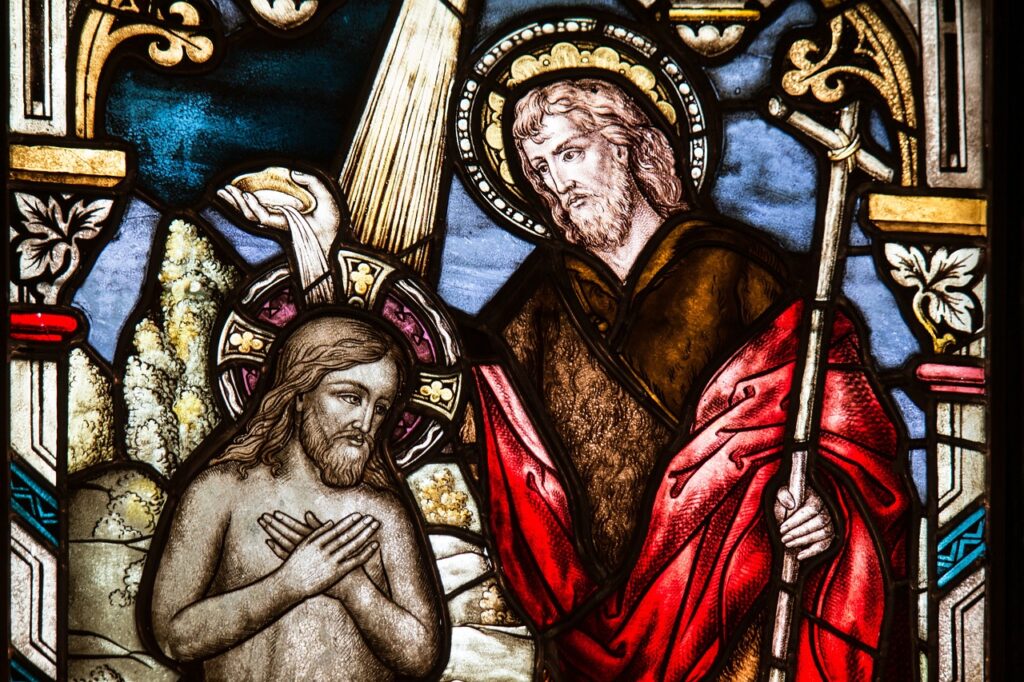Imagine embarking on a journey to uncover the foundational role of Jesus in Christian faith. It’s quite the adventure, thinking about what draws millions to follow His teachings and find solace in His presence. This exploration is set to uncover the purpose Jesus served, as discussed on WWJD.com, the original What Would Jesus Do? website. Whether you’ve been a lifelong believer or just someone curious about the significance of Jesus’s life and teachings, this adventure promises insights into what makes His role in Christianity so pivotal. Through looking at His actions, teachings, and the profound impact He has had on the world, prepare to gain a deeper understanding of Jesus’s purpose in the Christian faith.

Understanding the Person of Jesus
In dissecting the essence of Christianity, you’ll find Jesus Christ at its very core. Understanding who Jesus was and is, involves diving into his dual nature, his life, his teachings, and the profound miracles attributed to him.
The divinity and humanity of Jesus
You’ve probably grappled with or pondered on the complex nature of Jesus being both divine and human. This duality is central to Christianity. It highlights that Jesus, while being God incarnate, experienced the vulnerabilities, emotions, and challenges of human life. This concept allows you to see Him as approachable and relatable, bridging the gap between the Divine and mankind.
The birth and early life of Jesus
The narrative of Jesus’ birth is a cornerstone of the Christmas story, celebrated worldwide. Born to Mary in Bethlehem, his early life remains somewhat of a mystery with only a few biblical passages detailing his upbringing in Nazareth. This segment of Jesus’ life underscores his humble beginnings and the fulfillment of messianic prophecies from the Old Testament.
The teachings and miracles of Jesus
Jesus, the charismatic preacher, traversed regions teaching in parables and performing miracles that astonished crowds. From turning water into wine to calming storms, his actions were not just wonders but teachings of faith, love, and the nature of God’s kingdom. His Sermon on the Mount, parables, and succinct commandments to love God and others encapsulate his teachings, aiming at transforming hearts and minds.
Messiahship: Jesus as Savior
The role of Jesus as the Messiah is a monumental aspect of Christian theology, bringing salvation to humanity’s doorstep.
The concept of a Savior in Christianity
In Christian belief, the narrative of human history is marked by sin from the outset. Jesus steps into this narrative as the Savior, sent by God to redeem humanity from sin and restore the relationship between God and man.
Jesus as a fulfillment of Old Testament prophecies
Jesus’ life, from his birth to his resurrection, is seen as the fulfillment of numerous prophecies stated in the Old Testament, validating his Messiahship. Predictions about his lineage, birthplace, and the manner of his death were strikingly precise, reinforcing the belief in Jesus as the predetermined Savior.
The saving work of Jesus through Crucifixion and Resurrection
The crucifixion of Jesus is a pivotal event, symbolizing the ultimate sacrifice for the sins of humanity. However, it is his resurrection that seals the cornerstone of Christian faith, representing victory over sin and death. This act not just signifies the assurance of forgiveness but also the hope of eternal life for believers.
Jesus as A Teacher
Jesus’ approach to imparting wisdom was revolutionary, encapsulating profound truths in simple parables and principles.
Principles and parables taught by Jesus
The parables of the Good Samaritan, the Prodigal Son, and the Mustard Seed are just snippets of Jesus’ method of teaching, illustrating the kingdom of God, the nature of divine forgiveness, and the essence of faith.
Life lessons from Jesus’ teachings
The teachings of Jesus extend beyond religious dogma, providing practical lessons on forgiveness, non-judgment, generosity, and love. These teachings, if embodied, can significantly transform your personal life and interpersonal relationships.
Jesus’ instructions on personal and social ethics
Jesus famously summarized the entire law into two commandments: loving God with all your heart and loving your neighbor as yourself. This profound simplification not only prioritizes relational ethics but also promotes a societal framework based on mutual respect and love.
Divine Purpose: Jesus as the Messiah
The persona and mission of Jesus serve a divine blueprint in Christianity, encompassing the salvation and restoration of humanity.
Why Jesus is considered the Messiah in Christianity
Jesus embodies the hope for redemption and is considered the Messiah because he fulfills the divine prophecy and offers a pathway to reconciliation with God, through faith.
Jesus’ role in fulfilling God’s plan for mankind
Jesus’ mission was pre-ordained, serving as the linchpin in God’s plan for humanity’s salvation. His teachings, death, and resurrection are viewed as the fulfillment of a divine promise, extending an invitation to eternal life with God.
The cosmic implications of Jesus as the Messiah
The messiahship of Jesus has cosmic dimensions, signifying not just the restoration of individual lives but the eventual renewal of the entire creation. His role transcends time, promising an eternal kingdom marked by peace and righteousness.

Jesus as a Role Model
In Jesus, believers find the epitome of virtues such as love, humility, and self-sacrifice, serving as a guiding light in their lives.
How Jesus demonstrated love and humility
Jesus washed the feet of his disciples, a powerful act demonstrating servant leadership and humility. His willingness to associate with the marginalized of society exemplified his boundless love and compassion.
Jesus as a model of forgiveness
On the cross, Jesus uttered, “Forgive them, for they know not what they do,” offering forgiveness to those who crucified him. This pivotal moment underscores the depth of Jesus’ forgiveness, encouraging you to forgive unconditionally.
Jesus’ example of self-sacrifice
Jesus’ life was the ultimate act of self-sacrifice, willingly endured for the sake of humanity’s redemption. This selfless love challenges you to live beyond selfish desires, inspiring a life poured out in service and love for others.
Jesus’ Role in Prayer and Worship
Jesus’ teachings on prayer and his role in rituals underscore his centrality in Christian worship and personal spirituality.
Jesus as a medium of connecting with God
Jesus taught the Lord’s Prayer as a model of how to pray, emphasizing a direct, personal relationship with God. He is seen as the mediator between God and mankind, making God’s presence accessible to all.
Jesus’ part in Christian sacraments and rites
In the sacraments of Baptism and the Eucharist, Jesus’ teachings and sacrifice are commemorated and enacted, forming core practices of Christian worship that unite believers with the life, death, and resurrection of Jesus.
The importance of Jesus in Christian liturgy
The liturgy of the Christian church is deeply embedded with references to Jesus, his teachings, and the events of his life. These elements serve not only as a remembrance but as a living connection to the divine mystery of Christ.

Jesus in Christian Eschatology
The future coming of Jesus is a pivotal aspect of Christian hope, intertwined with beliefs about the end times and the final judgment.
Christian beliefs about the Second Coming of Jesus
Believers anticipate the Second Coming of Jesus with hope, viewing it as the culmination of God’s redemptive plan. This event is expected to usher in the fullness of God’s kingdom, where justice, peace, and righteousness prevail.
Jesus’ role in Judgment Day according to Christian beliefs
Jesus is believed to be the judge on the final day, evaluating the lives of all individuals. This judgment will determine their eternal destiny, based on their faith and actions in light of Jesus’ teachings.
The concept of eternal life through Jesus
Eternal life is a central promise in Christianity, granted through faith in Jesus Christ. This belief in an everlasting life with God offers hope and purpose, driving the moral and spiritual life of believers.
Jesus as Bridge between God and Humanity
The doctrine of the Incarnation positions Jesus as a unique mediator, embodying both the divine and the human.
The doctrine of Incarnation
The Incarnation is the belief that God became human in the person of Jesus Christ. This doctrine is fundamental to understanding Jesus’ unique role as the mediator between God and mankind, providing a tangible connection to the divine.
Jesus as mediator between God and people
As a mediator, Jesus facilitates a restorative relationship between humanity and God. By bridging this gap, He offers access to divine grace and the possibility of reconciliation with God, inviting you into a life of faith and communion with the divine.
Understanding the priestly functions of Jesus
In his priestly role, Jesus acts as the intermediary, offering himself as the ultimate sacrifice for sin. This function underscores his role in facilitating spiritual reconciliation and the sanctification of believers, enabling a direct relationship with God that transcends the need for earthly mediators.
Jesus and Christian Everyday Living
The teachings and example of Jesus provide practical guidance for navigating the complexities of everyday life.
‘What Would Jesus Do?’ ethos
The ‘What Would Jesus Do?’ principle encourages you to reflect on Jesus’ response to daily challenges and ethical dilemmas. This ethos serves as a moral compass, guiding actions and decisions in a manner consistent with Jesus’ teachings and example.
Incorporating teachings of Jesus in daily life
Living in accordance with Jesus’ teachings involves practices of love, generosity, forgiveness, and humility. These values, when embedded in daily life, not only enrich personal character but also positively impact the wider community.
Jesus’ guidance in dealing with trials and adversities
Jesus’ life and words offer profound comfort and guidance in times of trouble. His assurances of God’s love and care, amidst life’s storms, provide a deep well of strength and hope for navigating adversity.
Jesus and Christian Community Formation
The inception and nurturing of the Christian community are deeply linked to the teachings and practices instituted by Jesus.
The early Christian community and Jesus’ role
The early Christian community was formed around the teachings and fellowship of Jesus and his apostles. Practices such as communal prayer, breaking of bread, and sharing resources were grounded in Jesus’ instructions, fostering a sense of unity and mutual care.
Jesus’ commandment of love and its impact on Christian community
Jesus’ commandment to love one another as he loved has been the bedrock of Christian community life. This mandate promotes a culture of selflessness, compassion, and service, distinguishing Christian communities with their focus on altruistic love.
Jesus and the concept of Church
The concept of the Church, as the body of Christ, embodies the collective identity of believers united in faith, worship, and mission. Jesus’ vision for his followers to be a light to the world shapes the purpose and outreach of the Church, aiming to reflect God’s love and grace to all.
In essence, understanding Jesus’ multifaceted role in Christian faith provides a comprehensive framework for both the beliefs and practices that define Christianity. His life, teachings, and sacrificial love continue to inspire, challenge, and transform lives, beckoning you to explore the depths of faith and the heights of divine love.


Latest Comments